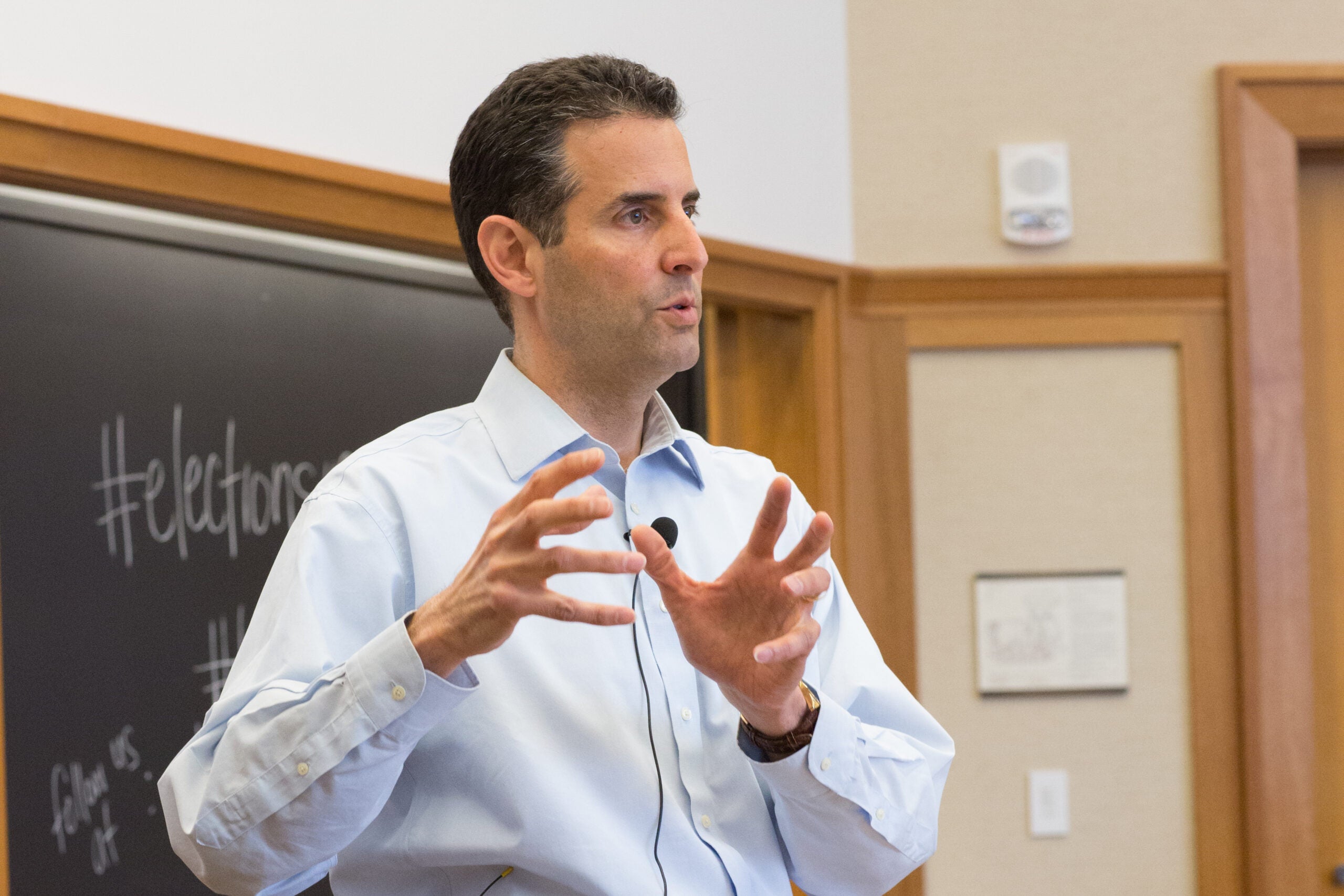Just days after the Supreme Court decided McCutcheon v. Federal Election Commission, which struck down aggregate limits on individual campaign contributions, U.S. Rep. John Sarbanes ’88 (D-Md.) delivered a keynote address at a Harvard Law School symposium on proposed legislation to reform campaign finance and dilute the influence of major donors.
Speaking at the Harvard Law & Policy Review’s “Elections in America” symposium on April 5, Sarbanes described his proposed “Government By the People Act” H.R. 20, which would aim to increase the influence of small, grassroots donations and provide a viable alternative to candidates seeking to avoid the windfalls offered by major donors, who then, Sarbanes said, wield a disproportionate amount of influence over politicians.
Sarbanes began by criticizing the Supreme Court’s decision in McCutcheon for opening the door for individual donors to buy Congressional influence “in one fell swoop” instead of “one member at a time.” He also acknowledged Congress’s low approval rate, currently at approximately 15%, and the country’s “tremendous anger” and deep cynicism toward its own representatives. “I don’t think you can sustain a democracy when the democratic institutions upon which it is based are held in such low esteem by the public,” Sarbanes said.
The Congressman suggested that some of that cynicism was a response to the undue influence on politics enjoyed by those who could afford to make major campaign contributions, a necessary evil for almost any politician who wants to run for Congress. Sarbanes, who holds a safely Democratic seat in Maryland, noted that he was one of just two members of the House of Representatives who now refuses to accept donations from political action committees (PACs), organizations that pool campaign contributions and are at the heart of much of the debate surrounding campaign finance reform. He explained, however, that politicians have few options, arguing that it costs $1.6 million every two years to run a Congressional campaign, a number that cannot be reached solely by seeking $25 contributions from average citizens.
In response, Sarbanes presented his proposed Government By the People Act, which he hopes could provide politicians with a viable alternative to taking large amounts of money from small numbers of donors. The plan begins by giving every citizen a $25 refundable tax credit that he or she could contribute to politicians of their choosing. The second step would be to provide a 6:1 match of public dollars to every grassroots donation, so that an individual’s $25 donation would generate $150 in matching funds, or $175 in total to a candidate’s coffers.
To combat the influence of PACs and super PACs in the last few months of an election, the third prong of the proposed bill would allow candidates in the last 60 days of an election to seek up to $500,000 in additional public funding. Taken together, Sarbanes said, the bill would give candidates the option to avoid taking funds from “big money” and “corporate interests” and focus instead on everyday citizens.
“The Occupy Wall Street movement in its purest form, and the Tea Party movement in its purest, homegrown form—both of them come from the same place, which is a feeling among everyday citizens that somebody else is running the show and that they’re being shut out,” Sarbanes said. “And if we don’t address that, then our relevance as an institution is going to disappear.”
The talk was presented by the Harvard Law & Policy Review as part of a symposium reflecting on the state of elections in the United States, particularly after several major Supreme Court decisions including McCutcheon and Shelby County v. Holder, which struck down a portion of the Voting Rights Act that had singled out certain jurisdictions for federal preclearance before making changes to voting laws. In addition to Sarbanes’ keynote address, the symposium included panels on redistricting, voting rights and campaign finance.
